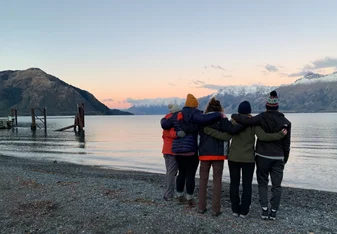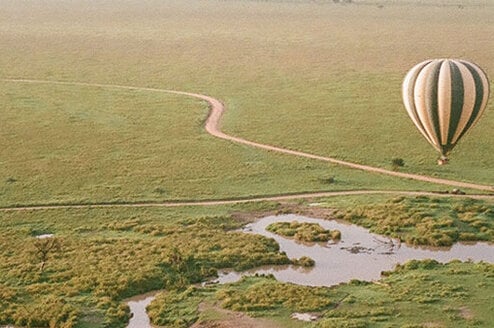Gap Year in Swaziland
Swaziland is a small country in Southern Africa, bordered by South Africa and Mozambique. It boasts lively and beautiful festivals featuring traditional Swazi culture, stunning mountains, and valleys, and wildlife reserves that are home to the Big Five, the lion, elephant, rhino, buffalo, and leopard.
Swaziland is naturally diverse, with beautiful hills and waterfalls, mountains, rivers, and valleys, while exotic wildlife roams around in the African bush. The people are warm and welcoming, and students will find that they feel right at home the second they arrive.
Students will find plenty of different opportunities in Swaziland based on their own interests. Some gap year ideas are:
- Learn Swati: Swati is the national language of Swaziland. Students can choose to take courses to learn Swati, which is a great way to culturally immerse themselves in the culture.
- Public health volunteering: Swaziland faces a number of public health issues including communicable diseases, antibiotic resistance, and chronic health concerns. Volunteers can help at local hospitals and clinics and plan and deliver public health awareness campaigns.
- Wildlife Conservation: Despite its size, Swaziland boasts incredibly diverse wildlife. Volunteers can work with organizations to help protect the wildlife in nature reserves and elsewhere by doing various tasks and fieldwork throughout the country. Students can work alongside professionals and ecologists.
- Adventure Tour Guide: There are a ton of opportunities for adventure in Swaziland, which is why working with a tour company is a great idea for adrenaline junkies at heart! Students can work in white water rafting tours, tours that track rhinos on foot, and tours that go adventure caving.
- Teaching English: Students can teach English at local schools in local communities. This is a great way to impact the local community and lives of children.
- Community Development Volunteering: Students can work in local communities by building houses, volunteering in orphanages, and bringing food and necessary supplies to those in need.
Popular Cities
Mbabane is the capital of Swaziland and is also the administrative capital. It’s located on the Mbabane River and has one of the three campuses of the University of Swaziland.
Another popular city is Lobamba, the traditional and spiritual capital of Swaziland. It’s known for the National Museum of Swaziland and the Mlilwane Wildlife Sanctuary.
Manzini is another popular city in Swaziland, and is the capital of Swaziland’s Manzini Region. It’s known as “The Hub” and has Swaziland's primary industrial site.
Visa
US Citizens do not need a tourist visa when traveling to Swaziland for up to 30 days. The visa can be extended once in Swaziland. Students can learn more by visiting the Swaziland visa website.
Students wishing to stay for longer periods of time need to apply for a temporary residence visa.
Costs
Swaziland is relatively cheap and affordable. Students can eat out at restaurants for less than $5, water is around $.50, a one-way ticket is around $.40 one way, and basic utilities for one month is $60.
Flying to Swaziland will be one of the student’s biggest expenses since flights can be quite costly. A one-way ticket to Swaziland from the US will cost around $1,000, depending on when you fly and where you fly from.
Students must keep in mind that any extra expenses such as medical insurance, toiletries, supplies, and equipment will set them back in their budget. Students should choose to buy local food and cook it themselves if they have a kitchen to cut costs, and avoid purchasing unnecessary items.
Housing
Students can choose to do either a homestay or live in an apartment in Swaziland depending on how they spend their gap year. Living in an apartment will give students the freedom and independence they may need in order to have flexibility in their schedule. Housing may or may not be included in the program they choose.
Students who choose to do a homestay and live with a local family will gain insight into a local family's culture and traditions, learn the Swati language quickly, and experience a unique cultural exchange.
There are also guesthouses and lodges in Swaziland that students can choose to live in.


















